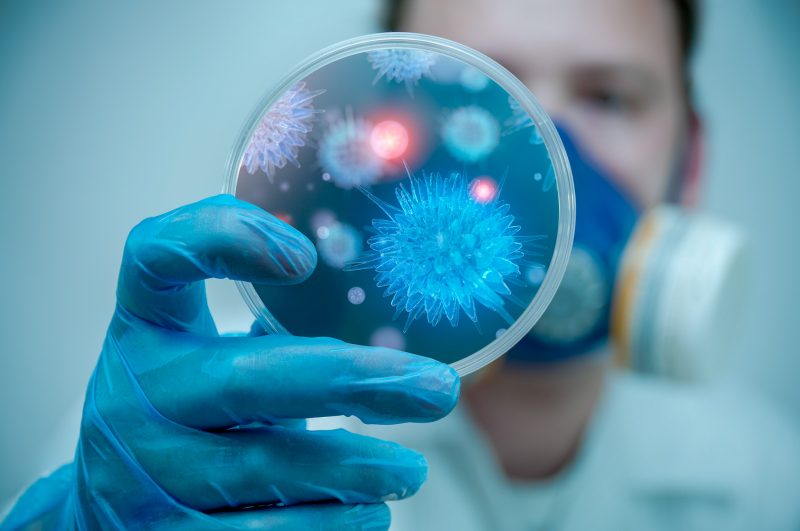British Columbia Salmon Farming and Viruses
Thousands of fish health screenings on wild, hatchery-raised, and farm-raised salmon have been completed by professionals in B.C., Alaska, and Washington State and not a single test confirms the presence of any exotic fish viruses or diseases, including ISA.
Viruses exist in every single living animal, including human beings. Viruses are the most abundant organisms on the planet.
All fish viruses present in B.C. farm-raised salmon are naturally occurring in the Pacific Ocean.
Most viruses are not harmful to fish and are not a risk to human health. However, because farmed fish live in greater density than wild fish – like people living in a city compared to people living in the country – some viruses can pose health risks to farmed salmon. As a result, fish health is monitored regularly by farm company veterinarians, and by the government.
Agriculture and mariculture are industries that are heavily regulated, these industries are under intense scrutiny, as they should be.
The influx of influenza in humans during certain seasons is an indication of how quickly viruses can spread.
In poultry farming for example. Wild birds, especially waterfowl, are natural reservoirs of influenza viruses (Takekawa et al, 2010). They are not normally sickened by the disease, but can still pass it on to domestic birds. Wild waterfowl excrete virus in their faeces and can also spread virus through direct contact. The disease can spread to birds through contact with infected poultry and poultry products. It can also spread through contaminated manure, litter, clothing, footwear, vehicles, equipment, feed and water (fomites – inanimate objects) (DJ Alexander, 2000 and 2007).
In aquaculture all salmon producing members of the BCSFA have developed a viral outbreak management plan, which allows for a quick and decisive industry-wide response if a virus of concern is ever detected in any B.C. salmon farm.
Farmed fish are monitored 24 hours a day, 7 days a week. There are risk management protocols in place for every potential situation. The industry has committed to and continues to commit to enormous amounts of scientific reviews thrust upon the salmon farming from within the industry itself, as well as reviews ordered by government and concerned citizens.
Salmon farmers utilize leading-edge technology and implement research and development innovations to bring the best product to market, while leaving the smallest environmental impact possible at this time.
To reiterate, thousands of fish health screenings on wild, hatchery-raised, and farm-raised salmon have been completed by professionals in B.C., Alaska, and Washington State and not a single test confirms the presence of any exotic fish viruses or diseases, including ISA.
Related Links:
Salmon farmers push for Federal Aquaculture Act
A common vision to protect wild salmon
Around the Web:
“An independent review ordered by the B.C. government into allegations a provincial lab was in conflict of interest because it does testing for the fish farm industry has found no conflict exists.”
“Risk of virus transfer to wild B.C. sockeye from farmed fish is low: federal study” CTV News.
Fish Health
The Poultry Site
Further reading:
Review of Epidemiological Approaches for Prevention and Control of Infectious Disease of Fish

